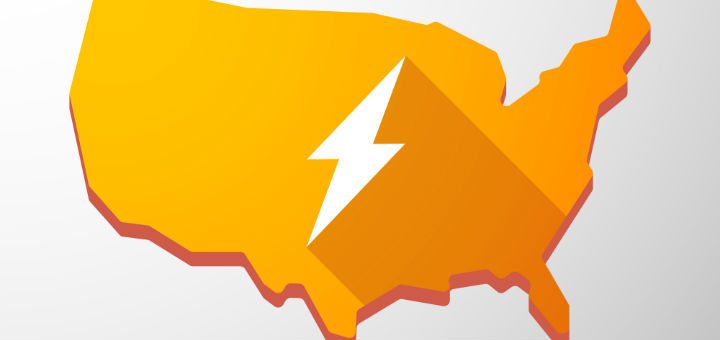Energy deregulation has been a hot topic across the country for several years.
While only some states in the US operate in a deregulated market, there are many across the country that are considering the move to deregulation. These markets offer residential and business property owners with the unique opportunity to choose their energy supplier, much like many consumers today choose their own phone supplier.
While deregulation is becoming more and more prevalent in this country, many consumers living in these markets actually know very little about energy deregulation. Some do not even know they have the power to choose, while others simply don?t know enough about deregulation to truly take advantage of all it has to offer. While there is a library of information available about energy deregulation and all that comes with it, for most consumers, it is important to simply know some basic facts.
Whether you live in a deregulated market, are moving to one or your community is in the process of considering deregulation, it is important to know these basic facts about this type of electricity market. Here is the 411 on energy deregulation, simplified for today?s average consumer.
1. The basic rule of deregulation is that consumers have the right to purchase their electricity service from a Retail Electricity Provider (REP). These providers strive to offer competitive rates, promotions and loyalty plans in an effort to win the business of average consumers. Most of these companies get their energy from the same source, but package it in different ways to fit the needs of different consumers.
2. Although there are REPs available in these markets, energy consumers still have the right to receive their electricity from their state-appointed utility. If you live in a deregulated market and haven?t switched providers, you are likely still with the original utility that serviced your area before deregulation took effect.
3. Before you sign up for a new energy plan, there will be a contract to sign that details the length of your specific plan. Most plans range from six months to 24 months. If you end that contract early, for any other reason besides moving outside that company?s service area, you will have a fee to pay. Fees range from company to company but will be detailed in your contract.
4. When you sign up with a REP, there will be two parts of your electricity bill, electric supply and electric delivery. Each makes up approximately 50% of the bill. These energy bills may look different than the ones distributed by your original utility, but any reputable retailer will explain the breakdown of a bill before you sign up for a service.
5. Deregulation means more than just the power to choose a supplier, it means having the capacity to choose what type of plan that you have as well. Most REPs offer options such as fixed rate plans, variable rate plans, short term options and long term options.
6. Most markets have at least one supplier that specializes in offering residential energy plans that feature electricity from 100% renewable resources. These plans offer the average consumer with one of the easiest ways to ?go green? in their home.
7. Your state appointed utility still takes care of your power lines. If you have an emergency with an outage or an issue with your power lines or poles, you do not call your individual retail energy provider. Instead you call your utility. They are still in charge of this infrastructure and will need to be contacted directly regarding any equipment related manners.
8. Deregulation laws vary from state to state. Not all states are deregulated and not all cities and regions within states that have deregulation are deregulated either. In states such as Texas, one of the first to adopt deregulation laws, 15% of the state is still regulated, including big cities such as Austin.
9. Deregulated energy markets are available in all or part of the following states: Arizona, Arkansas, California, Connecticut, Delaware, Illinois, Maine, Maryland, Massachusetts, Michigan, Montana, Nevada, New Hampshire, New Jersey, New Mexico, New York, Ohio, Oklahoma, Oregon, Pennsylvania, Rhode Island, Texas, Virginia and Washington D.C.
10. Electricity deregulation began in many states in the late 1990s. However, many consumers in these states have never switched or considered switching energy providers and are actually over paying for their energy service. Fortunately, there are several online shopping tools that make it simple for consumers in deregulated areas to shop for plans from local retailers in an effort to find a plan that best fits their needs.
When you get down to the details of energy deregulation, there are many different terms, laws and regulations that consumers may be inundated with. However, ultimately, most consumers simply need to know the basics of electricity deregulation and take the time to really research and new plan they are considering. Taking this approach can help keep energy deregulation simple and straightforward as you, the consumer, determine the best course of action for your energy consumption needs.



